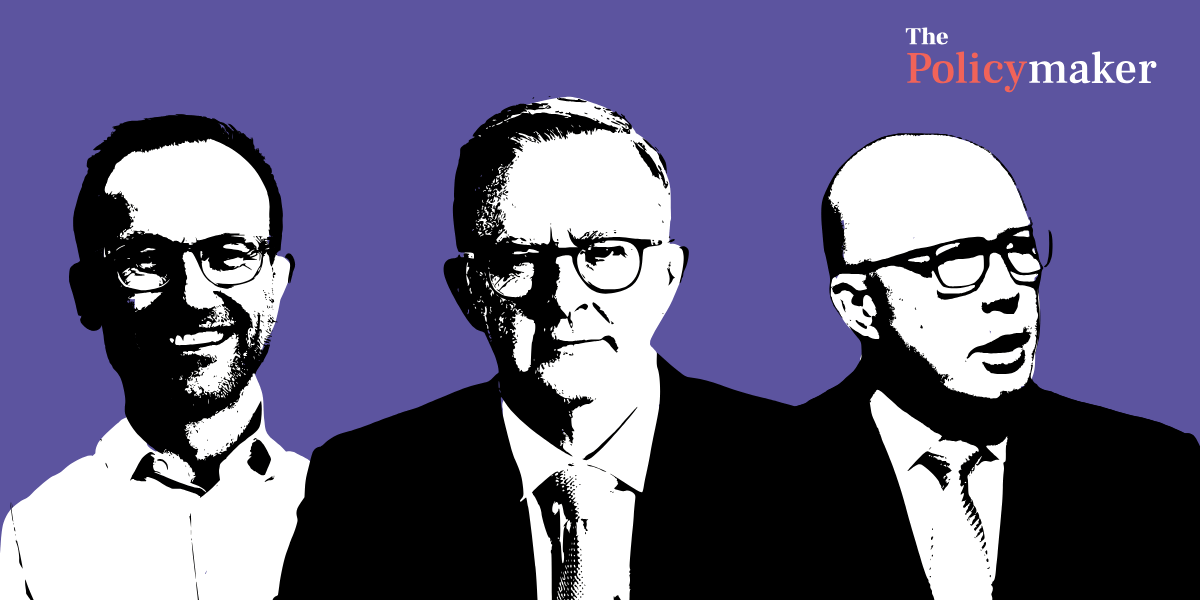Microcredentials: Small steppingstones towards a more inclusive future?
Skills mismatches will grow due to climate change and its economic fallout. Microcredentials can enable rapid and inclusive re-skilling while offering universities an opportunity to re-invent their mission in a “climate changed” world.

10 October 2023
It is 2043 in regional Australia. A rapid and uncontrolled downsizing of the fossil fuel sector has occurred, triggered by a sudden collapse in global demand and green swan events which accelerated the global renewable energy transition. The predictions of the Intergenerational Reports of 2021 and 2023, which noted that our key trading partners were committed to Net Zero by 2050 and that actions to limit global temperature increases to 2°C would cut thermal coal exports by 50 per cent by 2063, underestimated the escalation of global climate policy commitments and their associated economic impacts on regional communities.
The result was a rapid increase in unemployment and under-employment across the local fossil fuel industry. The limited economic diversification of the region frustrated opportunities for workers to find new employment in different sectors. There was an urgent need to retrain displaced workers, but existing course offerings across local higher education and vocational training institutions lacked currency due to the region’s shifting economic circumstances. Courses also poorly catered for the complex schedules and life circumstances of displaced workers, and were too expensive for risk adverse members of the community. The ongoing skills mismatches impeded regional economic resilience, holding back the emergence of new industries which could replace lost jobs and rejuvenate economic confidence.
At the same time, climate related disasters also affected other key regional industries, with agriculture and wine production becoming more irregular and unpredictable in light of mounting frosts, droughts and pest infestations which collapsed yields and produce quality. The growing frequency and severity of heatwaves also depressed productivity while making planting and harvesting schedules more erratic. The local tourism sector – formerly underpinned by globally renowned National Parks – was decimated by a broad collapse in regional biodiversity.
In this context, there was an urgent need for workers within these sectors to upskill to help them cope with the rapid and non-linear change of circumstance. But existing course offerings were intellectually siloed, lacking the cross-disciplinary approaches required to creatively problem-solve in these new times. Course content was not designed for immediate application into commercial contexts and did not teach the entrepreneurial skills necessary to develop new business models and strategies in a “climate changed” world.
A grim tale of a possible future indeed. But it is not an inevitable scenario. It does, however, potentially prefigure some of the central challenges facing the Australian higher education sector in a “climate changed” world. In this clouded horizon, universities will need capacity to simultaneously:
1. Provide equitable opportunities for affordable and accessible re-education and training.
2. Offer courses which are tailored to the unique economic and social challenges of transitional communities.
3. Develop courses rapidly in response to unforeseen challenges and rapid changes in circumstances, in close partnership with students, industry and community groups.
4. Deliver personalised student support services, suitable for the needs of vulnerable cohorts with complex needs.
5. Contribute to the preservation and renewal of local cultural knowledge, especially First Nations knowledge.
6. Offer opportunities to combat social isolation, loneliness, and diminished social capital, building a sense of purpose, belonging, control and achievement in a challenging world.
7. Conduct relevant, purposeful and socially impactful research in collaboration with local communities, meeting their needs and aspirations in turbulent times.
The role of microcredentials
One potential avenue for achieving some of these challenging goals as part of a wider “just transition” are microcredential courses. A microcredential is defined in the Australian “National Microcredentials Framework” as “a certification of assessed learning or competency, with a minimum volume of learning of one hour and less than an AQF award qualification, that is additional, alternate, complementary to or a component part of an AQF award qualification”.
Microcredentials have gained the attention of policymakers recently in light of the publication of the Australian Universities Accord Interim Report. The report noted that they could offer an innovative, affordable, and flexible option for re-skilling.
The industry relevance of microcredentials could also improve employability, as they are often formally endorsed by professional bodies or standards and can be recognised towards continuing professional development (CPD) requirements. In addition, the shorter duration and more applied and narrow focus of microcredentials can help students acquire skills more relevant to their immediate needs.
From a just transition perspective, they can also enable a more customised and personalised curriculum, better suited to the unique challenges and demographic characteristics of a community undergoing structural transformation. For instance, microcredentials could be rapidly deployed in response to shifting economic dynamics, such as a sudden downturn or the emergence of new industries, and can be tailored to the unique labour market conditions of transitional communities.
This flexibility is critical as these communities will likely suffer from entrenched unemployment and underemployment, characterised by skills mismatches and obsolescence. Microcredentials can facilitate faster entry into new careers in emerging industries, such as renewable energy, sustainable tourism or ecological restoration, while also enabling upskilling within occupations undergoing rapid change.
Moreover, as microcredentials are typically delivered online, they offer improved flexibility for students with multiple commitments and are potentially more inclusive to disabled and chronically ill students, their carers, and students with other mobility constraints. As microcredentials are typically offered at a lower price point than traditional award qualifications, they can potentially improve equity access to higher education. Virtual learning is also a scalable hedge in a climate disrupted world, with campus operations and infrastructure likely to be adversely impacted.
Finally, microcredentials offer new opportunities for universities to contribute to the wider public good, such as the preservation and revitalisation of regional knowledge and upskilling local communities to face key climate-related challenges, such as emergency response, inclusive community leadership, crisis management, and supporting community wellbeing.
Policy steppingstones
Currently, policymakers acknowledge that microcredentials have significant barriers. They lack widespread public recognition and do not cohesively integrate with award bearing qualifications, potentially creating a parity of esteem issue. While the Commonwealth Government’s Microcredentials Pilot is attempting to address some of these concerns, what policy steps could enable microcredentials to play an integral role in wider just transition efforts?
First, the completion of the Microcredentials Pilot will be essential in identifying critical issues which may impact the wider utilisation of microcredentials as part of a just transition. For instance, the Pilot may generate insights about how universities can optimise industry collaboration in curriculum development processes.
In addition, completion of the Pilot may generate insights into how student support services can be tailored to meet the unique needs of microcredential cohorts, and to identify improvements in administrative processes and resourcing, especially in regard to credit recognition protocols.
While the Pilot will help identify opportunities and roadblocks to wider adoption of microcredentials, greater clarity about the strategic purpose of these courses as part of just transition policies is needed, and how they can be tailored to meet present and emerging skills gaps in transitional communities. The recently announced Net Zero Authority offers policymakers an opportunity to clearly define the role of microcredentials in facilitating career transitions and improving economic diversification.
Some of the innovative ideas within the Australian Universities Accord Interim Report could also inform this wider discussion, including improving integration between higher education and vocational training, establishing a National Regional University and regional university centres, better integrating First Nations knowledge into curricula design, creating mission based compacts between universities and local communities, establishing co-operative skills centres, and utilising needs-based funding models to lift participation and equity outcomes.
Finally, there is a need to think about the position of microcredentials as part of wider reforms to social safety nets in transitional communities. Microcredentials will be more effective in reskilling communities if they are cohesively connected with income and other financial supports and are integrated into well-designed employment programs. Careful deliberation about sustainable finance models for microcredentials is also needed. Some potential options include lifelong skills accounts, a graduate tax, a graduate business levy, debt forgiveness and study grants or fee free courses.
Ultimately, microcredentials can never compensate for a lack of visionary leadership, inclusive community engagement, inadequate resourcing, and poor governance of just transition initiatives. However, they can play a crucial role in providing flexible, relevant and inclusive learning experiences as part of a wider just transition while better positioning universities to respond to the pressing challenges of a climate changed world.
Dr Jack Isherwood is a Senior Research Associate at the James Martin Institute for Public Policy, joining the institute on secondment from Western Sydney University, The College in 2023. He has a PhD in Political and Social Thought from the Australian Catholic University on the topic of civil discourse and civil disobedience. Jack is currently leading a microcredential pilot at Western Sydney University, as part of the Commonwealth Government’s Microcredentials Pilot in Higher Education initiative. Alongside his work at JMI, Jack manages short online courses at Western Sydney University, The College. He has research interests in climate adaptation and mitigation, higher education policy, and managing “black swan” and “grey rhino” scenarios.
Image credit: Getty Images
Features
Libby Hackett, Jordan Ward, Jack Isherwood, Bonnie Bley, Hannah Lobb, Isabella Whealing and Hugh Piper
Subscribe to The Policymaker
Explore more articles
Libby Hackett, Jordan Ward, Jack Isherwood, Bonnie Bley, Hannah Lobb, Isabella Whealing and Hugh Piper
Features
Libby Hackett, Jordan Ward, Jack Isherwood, Bonnie Bley, Hannah Lobb, Isabella Whealing and Hugh Piper
Explore more articles
Libby Hackett, Jordan Ward, Jack Isherwood, Bonnie Bley, Hannah Lobb, Isabella Whealing and Hugh Piper
Subscribe to The Policymaker







